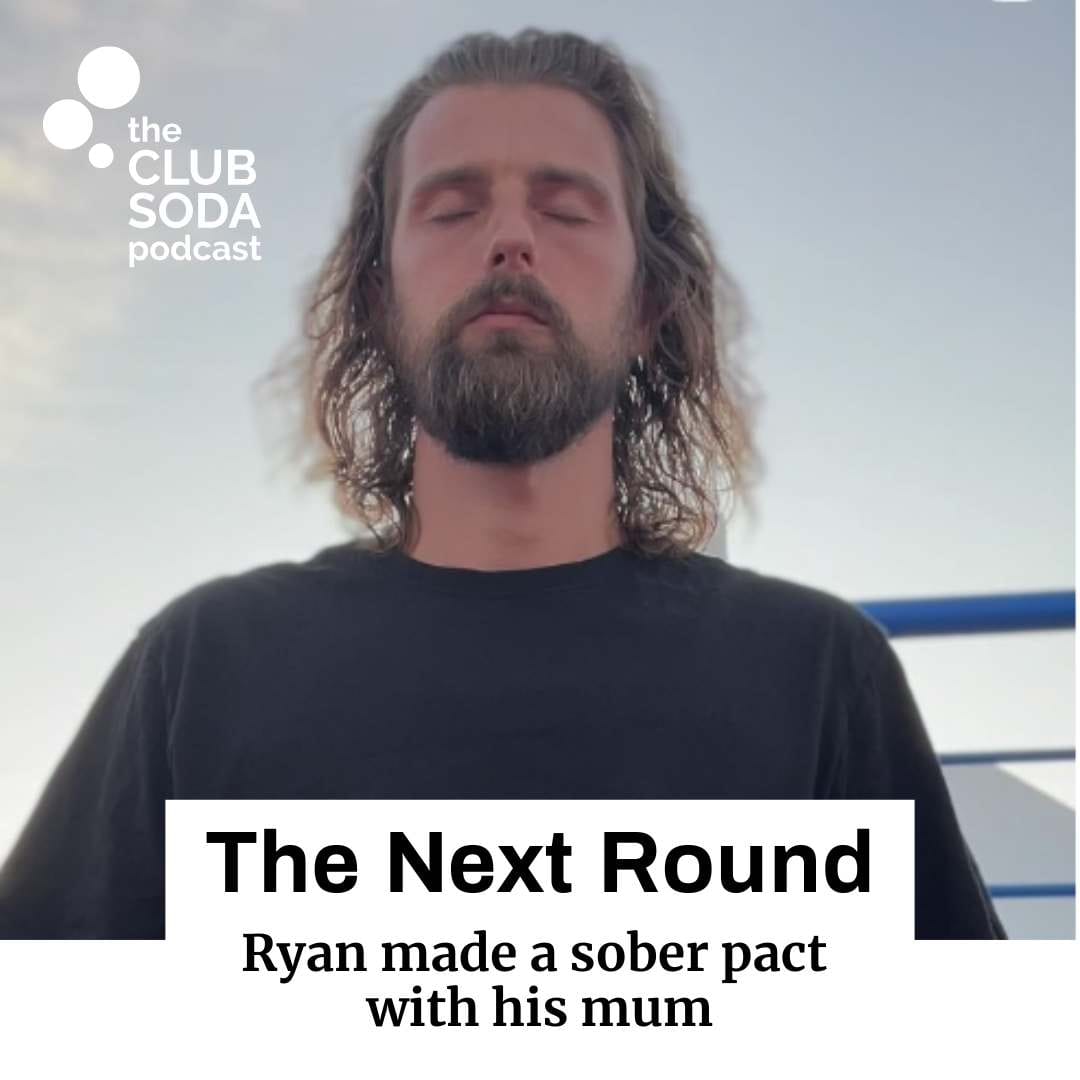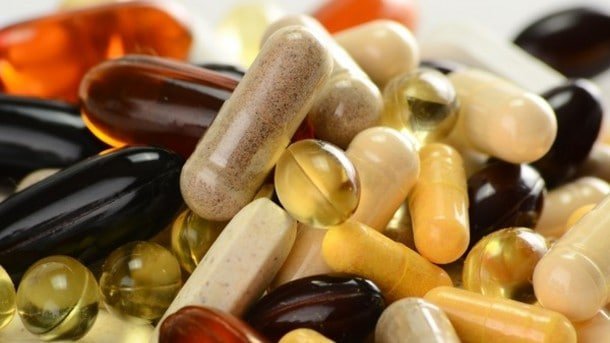
This website uses cookies to improve your experience. We'll assume you're ok with this, but you can opt-out if you wish. Read More
The Next Round: What happens after you change your drinking?

Club Soda member Louise provides advice about what vitamins and minerals may help you prepare for cutting down on booze!
Having nursed alcoholics I know what a toll alcohol takes on the body physically, so before I stopped I wanted to start addressing that.
Vitamins. Vitamins are essential to maintaining growth and normal metabolism because they regulate many physiological processes. Chronic heavy drinking is associated with deficiencies in many vitamins because of decreased food ingestion and, in some cases, impaired absorption, metabolism, and utilization. For example, alcohol inhibits fat absorption and thereby impairs absorption of the vitamins A, E, and D that are normally absorbed along with dietary fats. Vitamin A deficiency can be associated with night blindness, and vitamin D deficiency is associated with softening of the bones.
Vitamins A, C, D, E, K, and the B vitamins, which will also be deficient, are all involved in wound healing and cell maintenance. In particular, because vitamin K is necessary for blood clotting, deficiencies of that vitamin can cause delayed clotting and result in excess bleeding. Deficiencies of other vitamins involved in brain function can cause severe neurological damage. Vitamins B-1, B-3 and B-6, or thiamine, niacin and pyridoxine, are directly or indirectly involved in alcohol metabolism, and they are among the first nutrients to be depleted by excessive alcohol consumption. Your liver needs glutathione and other antioxidants to detoxify alcohol, and these compounds are not efficiently regenerated if we drink too much or too often. Since glutathione may also be required for optimal vitamin B-12 function, heavy alcohol use creates a B-12 deficiency. Furthermore, an alcohol-damaged liver is less capable of storing vitamin B-12. Finally, vitamin B-2, or riboflavin, is needed to regenerate glutathione, so this vitamin, too, is depleted by alcohol.
Minerals. Deficiencies of minerals such as calcium, magnesium, iron, and zinc are common although alcohol itself does not seem to affect the absorption of these minerals. Rather, deficiencies seem to occur secondary to other alcohol-related problems: decreased calcium absorption due to fat malabsorption; magnesium deficiency due to decreased intake, increased urinary excretion, vomiting, and diarrhoea; iron deficiency related to gastrointestinal bleeding; and zinc malabsorption or losses related to other nutrient deficiencies. Mineral deficiencies can cause a variety of medical consequences from calcium-related bone disease to zinc-related night blindness and skin lesions.
I started taking a daily multivitamin & multimineral, omega oils 3.6 & 9 and a 1000mg Vitamin C. Milk thistle is also good for liver detoxification.
If you read Patrick Holford Optimum Nutrition Bible he also recommends:
Antioxidant complex – these are substances that are capable of counteracting the damaging, but normal, effects of the physiological process of oxidation. Antioxidants are nutrients (vitamins and minerals) as well as enzymes (proteins in your body that assist in chemical reactions). Oxidative stress occurs when the production of harmful molecules called free radicals is beyond the protective capability of the antioxidant defenses. Antioxidants are a group of nutrients that can reduce the risk of numerous disorders that may be caused by free radical damage.
Adaptogenic herbs including ginseng, liquorice and rhodiola. Plus tyrosine, which helps to prevent emotional and physical lows after stopping.
Bone mineral complex (including calcium and magnesium)
L-Glutamine twice a day on an empty stomach – which helps the gut and reduces cravings.
He also says that a very alkaline diet reduces the cravings for alcohol and recommends a diet high in whole grains, beans and lentils and frequent meals containing protein such as nuts, seeds, fish,, chicken, eggs or milk produce. Oh and lots and lots of water.
He also warns that sugar addiction is often substituted for dependency on alcohol, as booze is just liquid sugar, so avoiding sugar and stimulants is recommended. I’ve recently been re-taking the L-Glutamine to help sugar cravings now that the alcohol cravings have totally gone.
Louise
References:
http://pubs.niaaa.nih.gov/publications/aa22.htm [last accessed 15/05/2015]
http://www.livestrong.com/article/415965-vitamins-depleted-by-alcohol/ [last accessed 15/05/2015]
This website uses cookies to improve your experience. We'll assume you're ok with this, but you can opt-out if you wish. Read More
| Name | Domain | Purpose | Expiry | Type |
|---|---|---|---|---|
| wpl_user_preference | joinclubsoda.com | WP GDPR Cookie Consent Preferences. | 1 year | HTTP |
| PHPSESSID | www.tickettailor.com | PHP generic session cookie. | 55 years | HTTP |
| AWSALB | www.tickettailor.com | Amazon Web Services Load Balancer cookie. | 7 days | HTTP |
| YSC | youtube.com | YouTube session cookie. | 55 years | HTTP |
| Name | Domain | Purpose | Expiry | Type |
|---|---|---|---|---|
| VISITOR_INFO1_LIVE | youtube.com | YouTube cookie. | 6 months | HTTP |
| Name | Domain | Purpose | Expiry | Type |
|---|---|---|---|---|
| _ga | joinclubsoda.com | Google Universal Analytics long-time unique user tracking identifier. | 2 years | HTTP |
| sbjs_migrations | joinclubsoda.com | Sourcebuster tracking cookie | 55 years | HTTP |
| sbjs_current_add | joinclubsoda.com | Sourcebuster tracking cookie | 55 years | HTTP |
| sbjs_first_add | joinclubsoda.com | Sourcebuster tracking cookie | 55 years | HTTP |
| sbjs_current | joinclubsoda.com | Sourcebuster tracking cookie | 55 years | HTTP |
| sbjs_first | joinclubsoda.com | Sourcebuster tracking cookie | 55 years | HTTP |
| sbjs_udata | joinclubsoda.com | Sourcebuster tracking cookie | 55 years | HTTP |
| sbjs_session | joinclubsoda.com | SourceBuster Tracking session | Session | HTTP |
| Name | Domain | Purpose | Expiry | Type |
|---|---|---|---|---|
| mailchimp_landing_site | joinclubsoda.com | Mailchimp functional cookie | 28 days | HTTP |
| __cf_bm | tickettailor.com | Generic CloudFlare functional cookie. | Session | HTTP |
| NID | google.com | Google unique id for preferences. | 6 months | HTTP |
| Name | Domain | Purpose | Expiry | Type |
|---|---|---|---|---|
| _ga_10XZMT03ZM | joinclubsoda.com | --- | 2 years | --- |
| AWSALBCORS | www.tickettailor.com | --- | 7 days | --- |
| cf_clearance | tickettailor.com | --- | 1 year | --- |
| VISITOR_PRIVACY_METADATA | youtube.com | --- | 6 months | --- |
Join Club Soda for 10% off your first order of drinks for UK delivery. Plus get our latest news and special offers for members to choose better drinks, change your drinking and connect with others.
If you get an error message with this form, you can also sign up at eepurl.com/dl5hPn